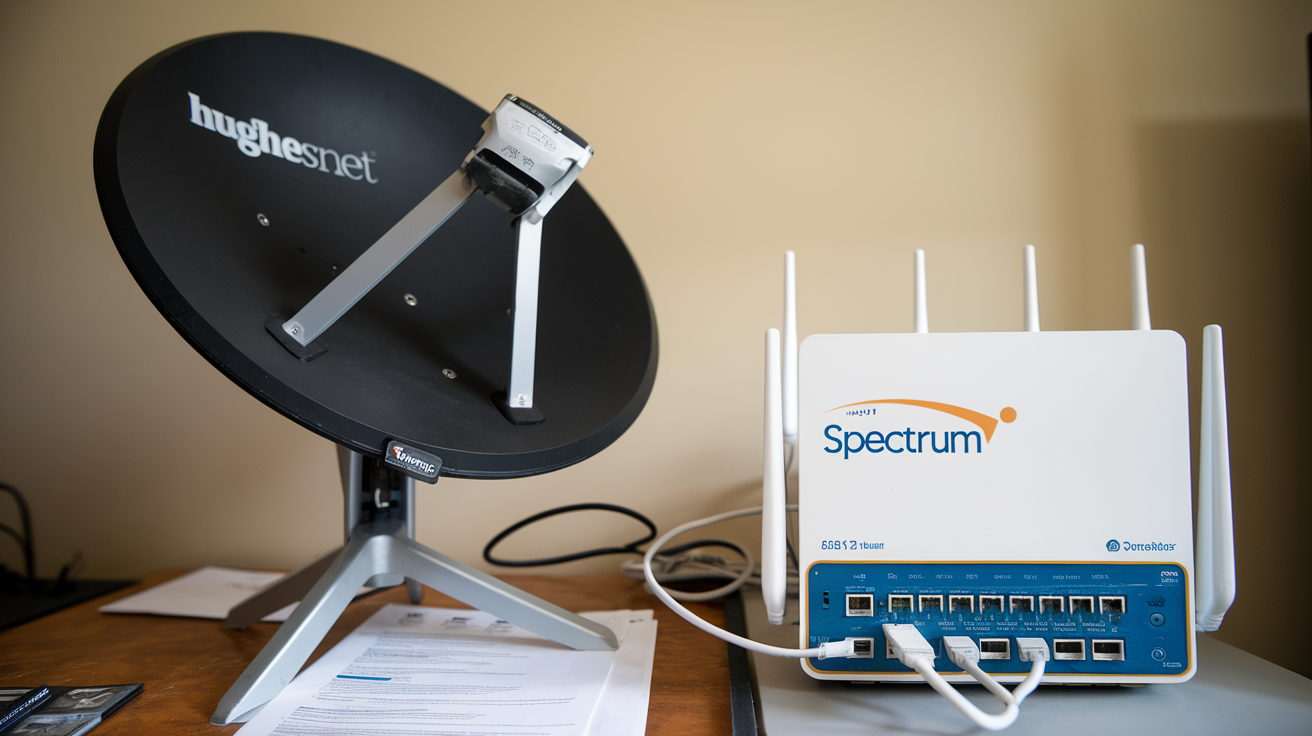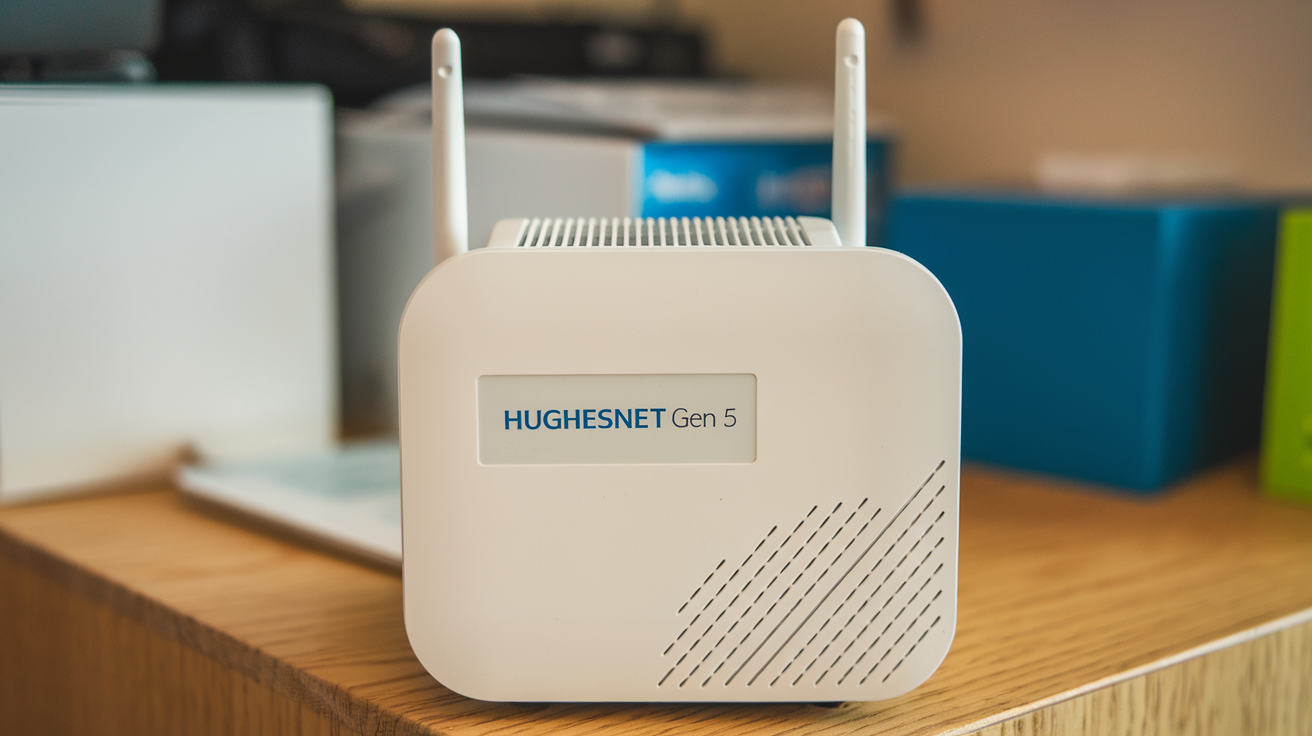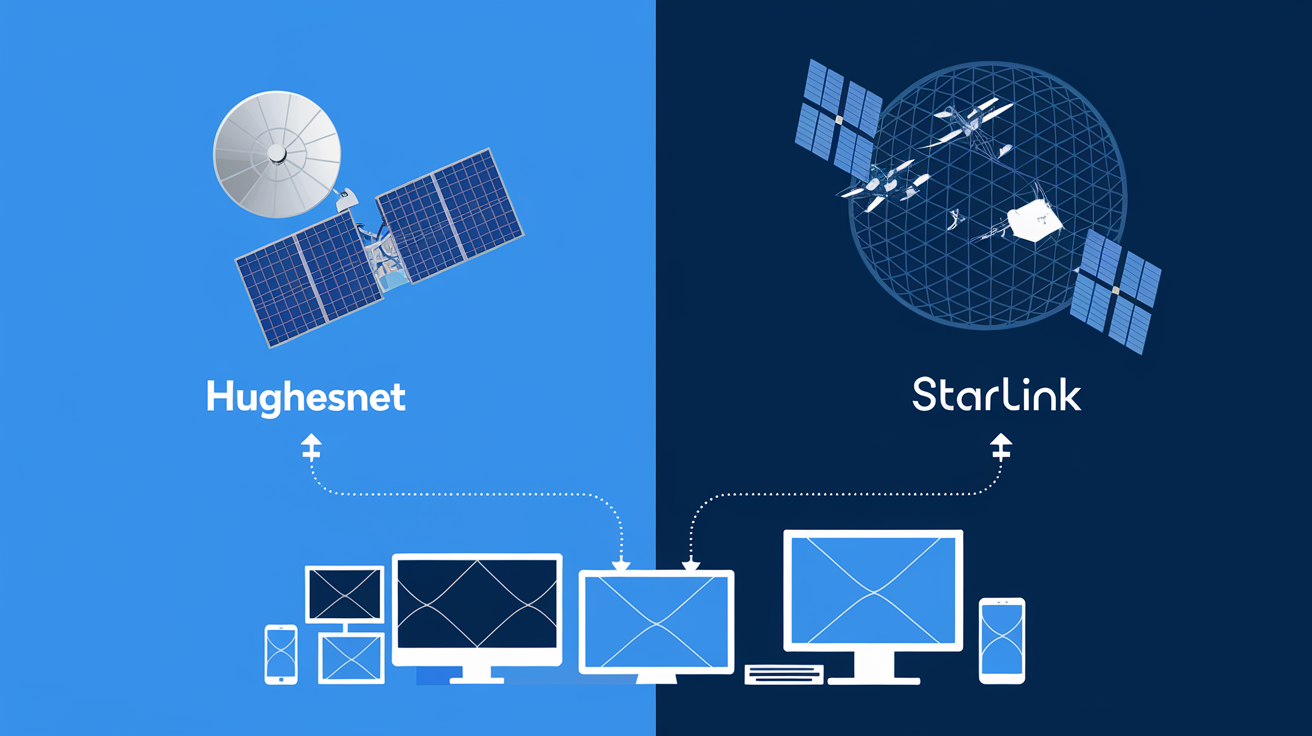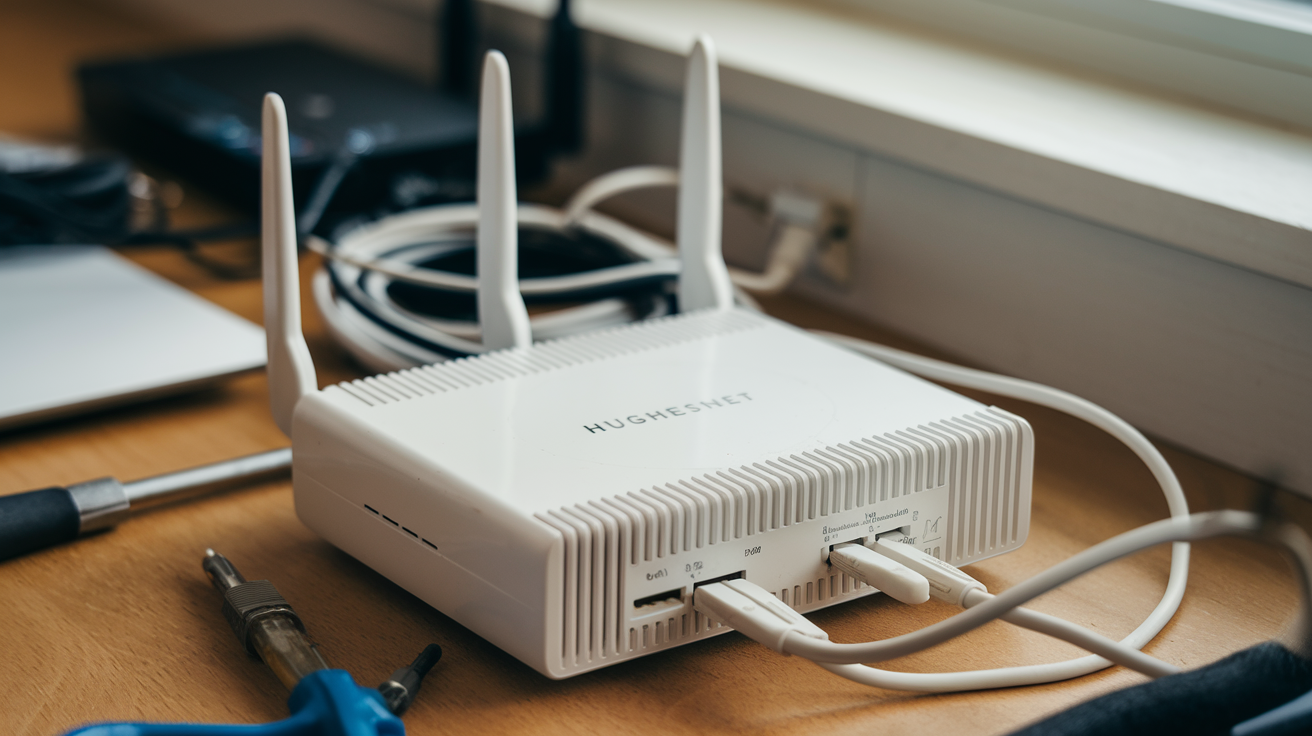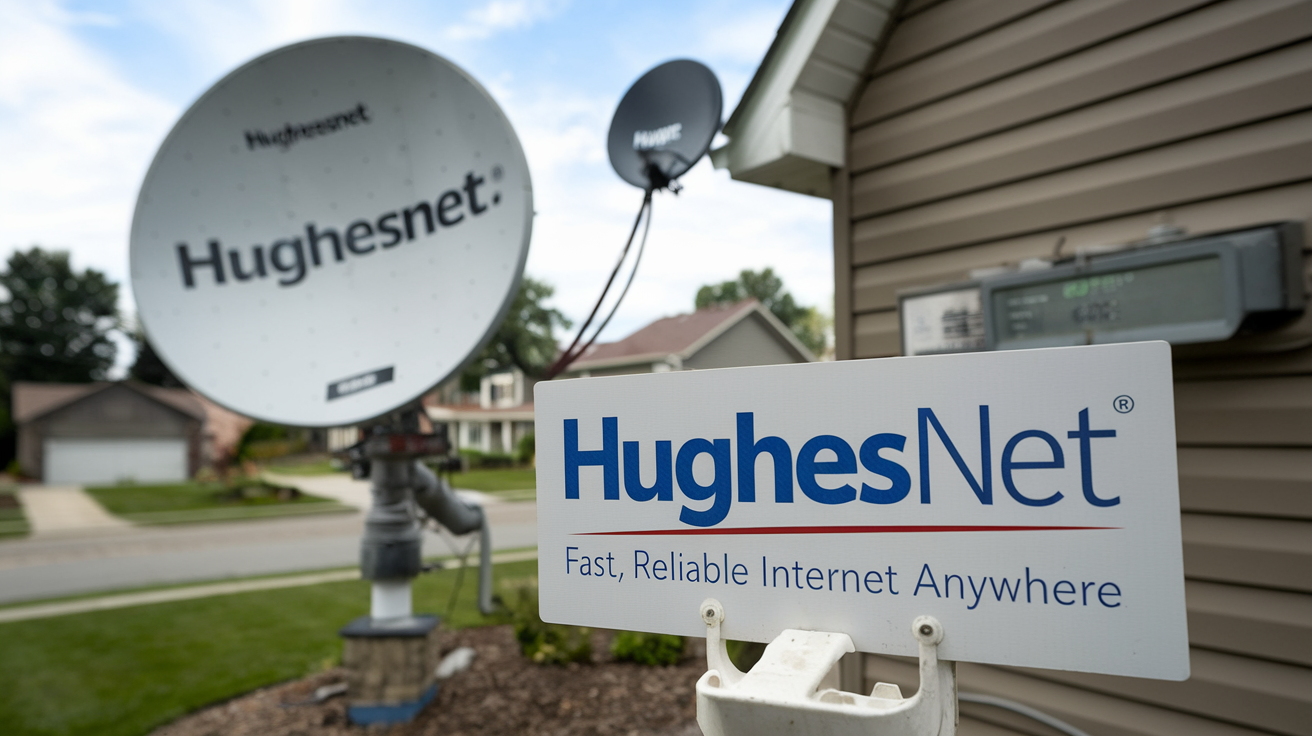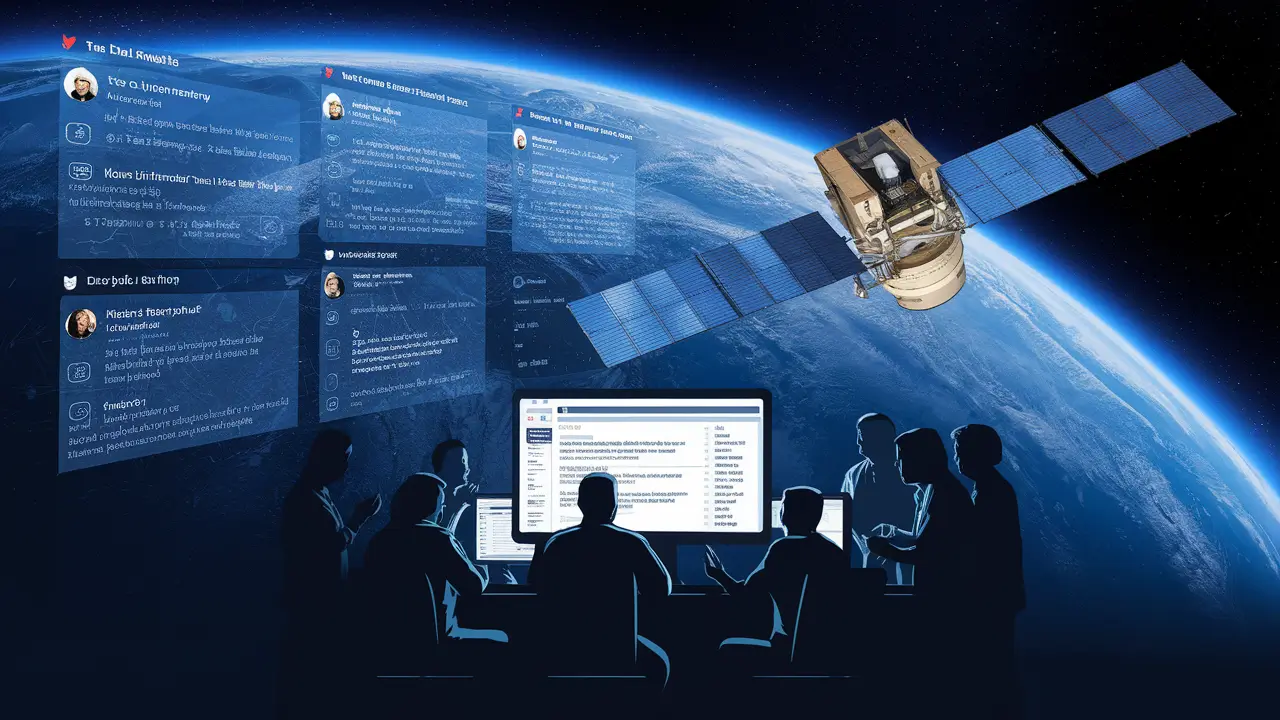
What is this controversy all about now called the HughesNet controversy?
HughesNet is a satellite internet connection service that provides internet connection in the United States of America, it is a form of internet that is provided through satellite hence covers most of the areas where the cable and fiber optic internet is not readily available. However, HughesNet has been under criticism and controversy concerning data limits and usage caps, usage throttling, and charges.
Mobile Internet Data Limitations and Tariffs
Perhaps the most debatable issue with HughesNet is the fact that it enforces what it terms as data quotas. HughesNet also offers plans that are monthly with a data cap that starts from 10GB for the basic plan to 50GB for the highest plan. For instance, once the customers have used up fifty gigabytes in a month, then they must either purchase an additional fifty gigabytes at $10 for one gigabyte or have their internet speeds reduced to a painfully slow 1 to 3 Mbps until the following month.
Such customers have described such data allowances as insufficient for ordinary use of the Internet today, be it for streaming, downloading large files, gaming, or managing smart Internet-connected home appliances. The customers complain that they are charged more than their limit in the first week or two of their billing cycle. The overage fees then put the service in a class that is extremely expensive from what a normal user would have expected.
Several pundits have pointed out that offering only 10-50GB of full-speed data per month at this time and age of streaming rather interesting TV shows, music and a myriad of other relevant videos is not sustainable. Especially when a significant number of cable and fiber providers present users with such options as unlimited data or 1TB of monthly usage.
Data Throttling As A Method of Network Management
Moreover, HughesNet, due to the extremely low ARPU, has to enforce strict data caps and admits to throttling speeds for some kinds of traffic. If the network notices frequent consecutive downloads or video streaming, VPN connections, games downloads, or other activities typical for high-bandwidth users, customers can experience a considerable slowdown of connection speeds.
This makes it almost impossible to game over HughesNet, stream high-quality videos and movies, download apps and OS updates, or even use a VPN for better privacy. Some customers complain that they experience very slow speeds while browsing for such types of internet activities regardless of whether they have exceeded their data limit or not.
HughesNet maintains that this network management technique is important since it ensures that all the customers are well served in any network. However, critics argue that their throttling policies are even more aggressive than many other Internet service providers.
High cost for the level of service they offer To get a clearer picture of the findings, the following questions were posed.
HughesNet internet service also had complaints concerning high charges for the kind of internet service delivery offered. To begin with, the prices for plans are $59. 99 for 10GB, and the price increases as the amount of data increases to $149. 99 for 50GB. It is far more expensive than most cable plans which offer different packages of unlimited data and customers experience a steep rise in additional cost once they surpass the data limit.
Since the low data amounts mean that HughesNet usage can be very costly, producing overage charges constantly, several of the clients have reported their internet costs at $200-300 for a month but with slow connection speeds that are throttled. The main problem that critics point out is that such a price becomes unreasonably high in comparison to the quality and stability of the internet connection offered by HughesNet.
Unsatisfactory Customer Feedback and Low Satisfaction Rates
When it comes to consumer reviews, HughesNet gets very low scores, and even the most loyal consumers provide it not more than 1 or 2 stars out of 5. Common complaints are about hitting their strict data allowance within the first few days or the second week of the month, poor Internet speeds when throttling is applied, and discontent with having to pay highly for substandard Internet.
For instance, in the ASOC 2020 report, HughesNet was ranked 56th out of the 62 ISPs and pay-TV providers in the ACUI, with a score of 54 out of 100. This was the worst rating out of all other important internet service providers that were reviewed.
My personal favorite is ‘Love It or Hate It’, simply because of the way it was created, with a clear split between the two sentiments ‘love it’ and ‘hate it’.
In conclusion, two primary issues led to the dispute over HughesNet, which include; While customers are willing to pay more for the service, they are offered meager data and speed capacities. Yes, HughesNet may be the only internet service provider for those whose only other option is dial-up or not even a choice at all but many of the subscribers out there are unhappy and frustrated with the service.
HughesNet subscribers and potential ones should be aware of the most frequent problems regarding data limits, slowed speeds, and tariffs before they sign a contract. Current customers will always wish to be careful about the amount of data consumed on their internet usage each month so as not to exceed and in the process incur high costs that they had not expected. However, some users who do not have any other way may be forced to live with the benefits and drawbacks associated with satellite internet.
